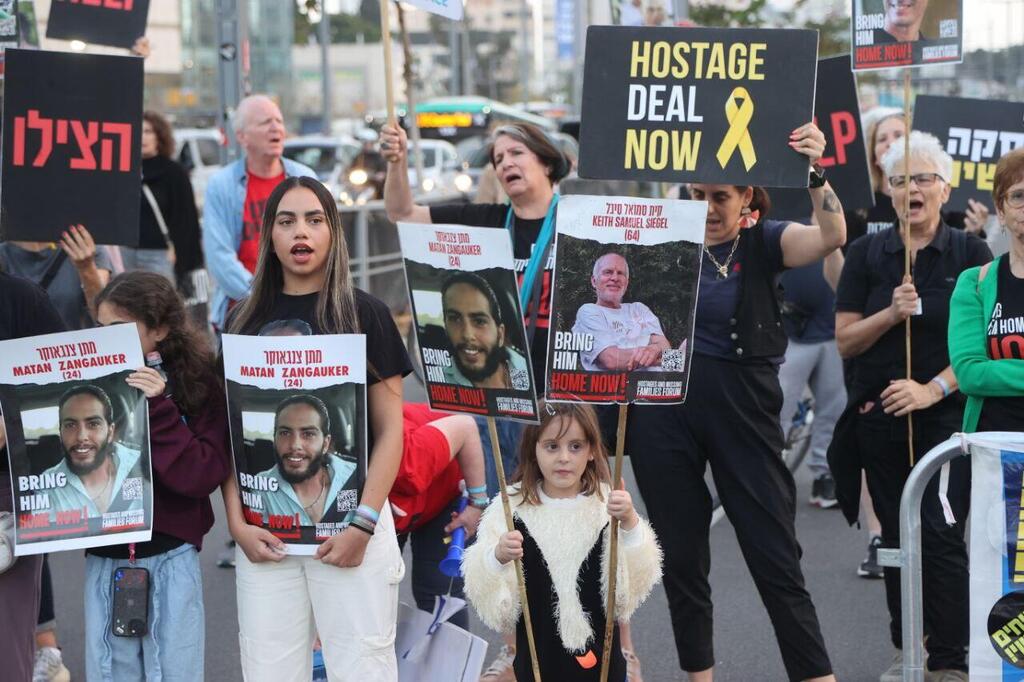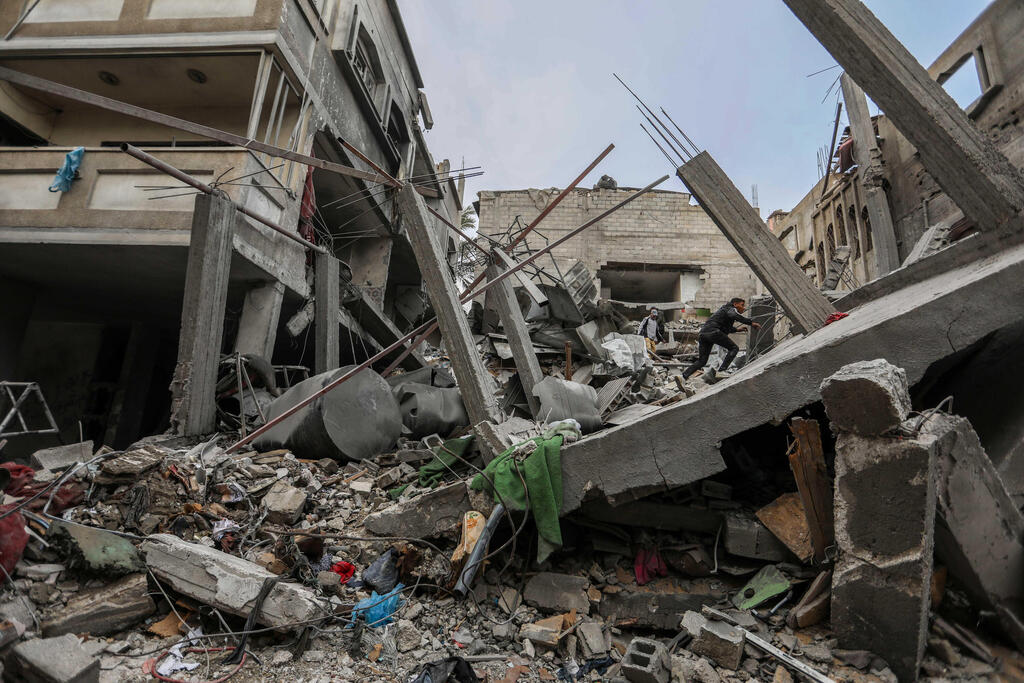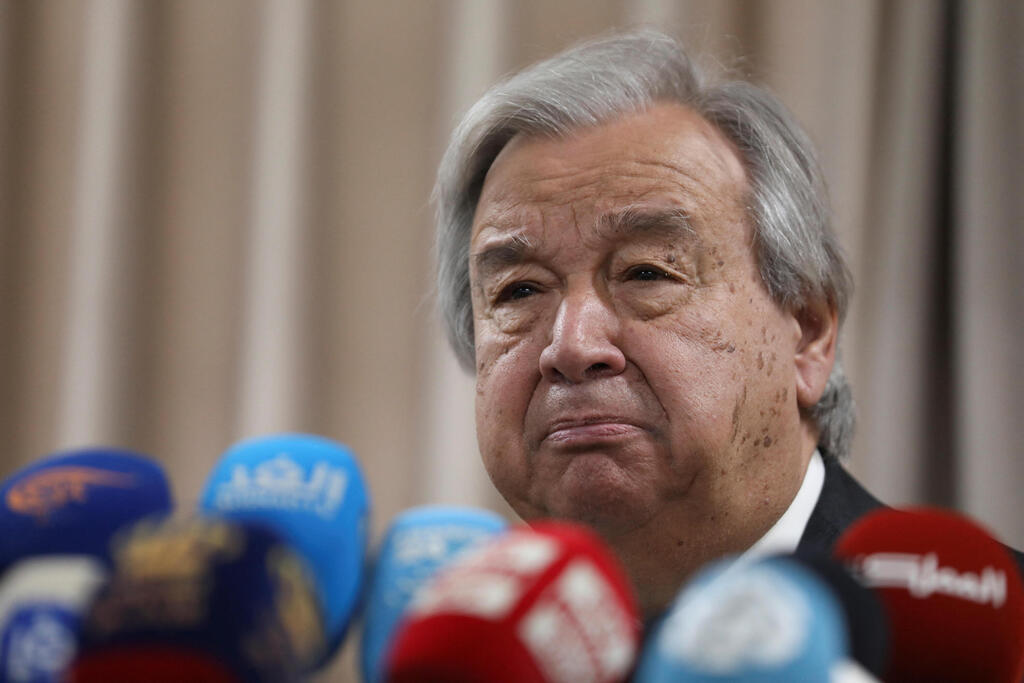Getting your Trinity Audio player ready...
On Friday, U.S. President Joe Biden wrote to the leaders of Egypt and Qatar, calling on them to press Hamas for a hostage deal with Israel, according to a senior administration official, one day after Biden called on Israeli Prime Minister Benjamin Netanyahu to redouble efforts to reach a cease-fire in the six-month-old war in Gaza.
5 View gallery
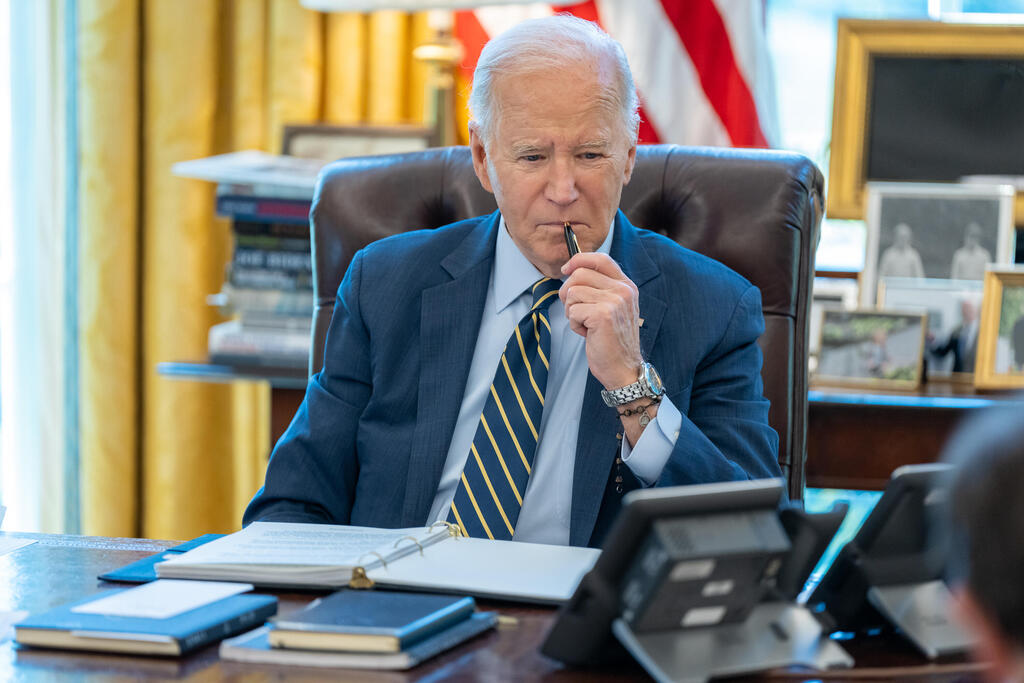

After call with Netanyahu, Biden urges Egypt and Qatar for assistance with hostage deal
(Photo: President Biden's X account)
The official, who spoke on the condition of anonymity to discuss the private letters, said Biden’s national security adviser, Jake Sullivan, will meet Monday with family members of some of the estimated 100 hostages who are believed to still be in Gaza.
The letters to Egyptian President Abdel Fattah el-Sissi and Qatar’s ruling emir, Sheikh Tamim bin Hamad Al Thani, come as Biden has deployed CIA Director William Burns to Cairo for talks this weekend about the hostage crisis.
Mossad chief David Barnea and negotiators from Egypt and Qatar are expected to attend. The Hamas side of the talks is indirect, with proposals relayed through third parties to Hamas leaders sheltering in tunnels beneath Gaza.
White House officials say negotiating a pause in fighting between Israel and Hamas to facilitate the exchange of hostages held in Gaza for Palestinian prisoners held in Israel is the only way to put a temporary cease-fire into effect and boost the flow of badly needed humanitarian aid into the territory.
5 View gallery
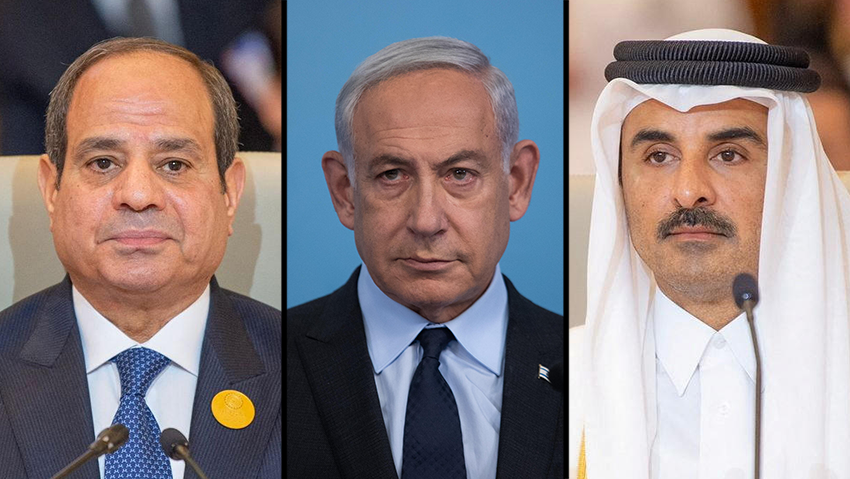

Egyptian President Abdel Fattah el-Sissi, Prime Minister Benjamin Netanyahu, and Qatar’s emir, Sheikh Tamim bin Hamad Al Thani
(Photo: Reuters/ Saudi Press Agency/Handout, Reuters/ Saudi Press Agency/Handout, Alex Kolomoisky)
Biden, in his conversation with Netanyahu, “made clear that everything must be done to secure the release of hostages, including American citizens,” and discussed “the importance of fully empowering Israeli negotiators to reach a deal,” according to the official. The first phase of the proposed deal would secure the release of women and elderly, sick and wounded hostages.
White House national security spokesman John Kirby said earlier Friday that Biden underscored the need to get a hostage deal done during the Thursday conversation with Netanyahu that largely focused on Israeli airstrikes that killed seven aid workers with World Central Kitchen.
“We are coming up on six months — six months that these people have been held hostage. And what we have to consider is just the abhorrent conditions” the hostages are being held in, Kirby said. “They need to be home with their families.”
Biden had expressed optimism for a temporary cease-fire and a hostage deal during the runup to the Muslim holy month of Ramadan, but an agreement never materialized.
The White House said in a statement Thursday following Biden’s call with Netanyahu that the U.S. president said reaching an “immediate cease-fire” in exchange for hostages was “essential” and urged Israel to reach such an accord “without delay.”
White House officials acknowledge that Biden has become increasingly frustrated with Israel’s prosecution of a grinding war that has killed more than 33,000 Palestinians.
The war in Gaza began when Hamas terrorists stormed into southern Israel, killing some 1,200 people, mostly civilians, and taking around 250 people hostage.
The Israeli military campaign in Gaza, experts say, is among the deadliest and most destructive in recent history. Within two months, researchers say, the offensive already has wreaked more destruction than the razing of Syria’s Aleppo between 2012 and 2016, Ukraine’s Mariupol or, proportionally, the Allied bombing of Germany in World War II. It has killed more civilians than the U.S.-led coalition did in its three-year campaign against the Islamic State group.
The White House has maintained its support for Israel amid growing domestic and international wariness with Israel’s prosecution of the war, and repeatedly said that a temporary cease-fire could have already come had Hamas agreed to release the sick, the wounded, the elderly, and young women.
The Israeli government acknowledged “mistakes” and announced some disciplinary measures against officers involved in ordering the strikes. Israel also approved a series of steps aimed at increasing the flow of humanitarian aid into Gaza, including the reopening of a key crossing that was destroyed in the Oct. 7 Hamas attack.
U.N. Secretary-General Antonio Guterres said Friday that the World Central Kitchen incident is part of a broader problem with how the Israeli military is carrying out the war. Nearly 200 humanitarian aid workers have been killed since the start of the war.
“But the essential problem is not who made the mistakes, it is the military strategy and procedures in place that allow for those mistakes to multiply time and time again,” he said. “Fixing those failures requires independent investigations and meaningful and measurable change on the ground.”



